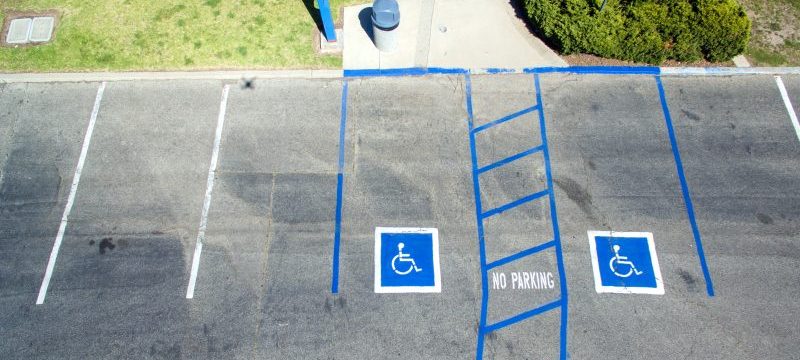When I recently returned to my physical office, I wondered if my attitudes toward the workplace have been grounded in the antiquated 20th century rather than the technology revolution. As such, I reflected on the future of my own career and whether it should be virtual or face-to-face. All of us arguably require physical attention and touch that Zoom cannot mimic.
As a former board member at a now-defunct organization, Federal Employees with Disabilities, I recall that we received more than a notable share of concerns as to decisions or policies discouraging remote working as an accommodation. Many people with disabilities have advocated for expansion in remote education or remote working options long before the pandemic, only to be rebuffed in some circumstances by varied kinds of institutions.
Our transformation in how we define our workplaces seems overdue to many of us with or without disabilities. The Biden administration seems inclined to have pro-worker policies, including remote working, as an option. Notably, a mixture of workplace options may be required to expand diversity, equity and inclusion by people with disabilities.
Exploring Remote Work as a Flexibility
Work-at-home opportunities proved a helpful adjustment (or in legal terms, reasonable accommodation) for some people with disabilities long before the onset of the pandemic. An employee or manager with a compromised immune system may have filed a reasonable accommodation request to work at home long before the pandemic. During the winter, that individual might have wanted to avoid germs during the flu season.
As a recent example, I have performed proficiently while working via remote means. I’m a lawyer but a blind person who navigates the workplace, including the reasonable accommodations process. Since the onset of the pandemic, I have worked with my sighted assistant via Zoom.
Specifically, the wonders of a screen-reader enables me to accomplish many job function tasks (A value I prefer). I meet with my assistant for such tasks as reading documents. Adobe does not seem to translate all documents well for a screen-reader. I have learned that the assistant and I work well together via Zoom.
Other benefits demand a note. Because of remote work, I saved approximately $6,000 in work and non-work-related transportation costs. Beyond reasonable accommodations and overall retention issues, certain holistic barriers also hinder people with disabilities in their meaningful careers. Affordable transportation has been a challenge for me. As this shows, remote working provides an important alternative to the challenge and to the cost associated with transport to a job.
I hope that a reduced demanding schedule on Bowie may prolong his working career. Those who don’t work with dogs in the public may not understand the stress levels in a simple task that sighted people daily engage in when entering or exiting a building or accessing a Lyft driver. Emotional and physical stress results from navigating the physical space. Therefore, hybrid work options should help people with disabilities and their service animals to enjoy the broadest range of options for expanding their mutual careers.
However, I recognize the value of human connection and the presence of a dog in the room or at the coffee cart.
The Value of the Face-to-Face Contact
Who knows whom we influence by that random interaction at a coffee cart or participation in a professional association?
Sighted people may think that speaking with someone face-to-face or via Zoom as a blind person holds the same lack of visual contact and, therefore, are the same. A difference does exist. I admit, however, that remote work may lessen anxiety and stress as a dog handler, benefiting the systolic.
All three of my dog partners have touched many lives. On a high level, this has occurred by my remarks delivered at a meeting or at the Maryland Commission on Civil Rights when they have been present with me. Yet this has often occurred by buying a cup of coffee at a bistro or at a cafeteria. Where Mr. Langer, or Mr. Pilot, or Mr. Bowie have looked so photogenic or have improperly sniffed someone.
For all of the benefits of remote work, I hold concerns that a level of access or inclusion may be surrendered if we are not intentional as to our future workplaces. Arguably, Zoom cannot replace the value of random contact or visibility.
Recommendations
Agencies or departments must evolve in treating remote working similar to the basic question of a work shift. There seems to be no difficulty with many agencies if one wants to work an eight-hour shift or a nine-hour shift, or even a ten-hour shift. The virtual office should not be a challenging request past the pandemic. To enable this, a lot of work must be performed.
In December 2020, I co-designed and co-facilitated a workgroup at the Technology Inclusion Summit held by the German Marshall Fund of the U.S. Our workgroup discussed “digital deserts.” I recall that the Clinton administration tried to address the “digital divide.”
Given that slow virtual private networks or non-existent VPNs have even plagued IT experts since the onset of the pandemic, we must intentionally, if finally, choose a future society where connecting to a physical office is no more difficult than walking down the street for a gallon of milk. Yet all of us need more than just Zoom.
To ensure diversity, equity, and inclusion related to people with disabilities, we must balance the benefits of remote working with the warmth of a dog’s tail under the conference table or at the coffee cart.
Mr. Norman, a lawyer, emerging journalist and consensus-builder, received the Administrator’s Award at the Centers for Medicare & Medicaid Services in 2020 for his work on healthcare accessibility and quality policy related to people with disabilities. In November 2019, Mr. Norman served as a Fellow at the invite-only Public Policy Conflict Resolution Fellowship. In 2015, he served as a Visiting Fellow at the non-partisan Robert J. Dole Institute for Politics. He established a multi-year, non-partisan symposium on animal law and policy, brokering regional or even national experts together. The dog or dogs of Mr. Norman are usually nearby chewing on a bone.
Photo by Robert Ruggiero on Unsplash






Leave a Reply
You must be logged in to post a comment.